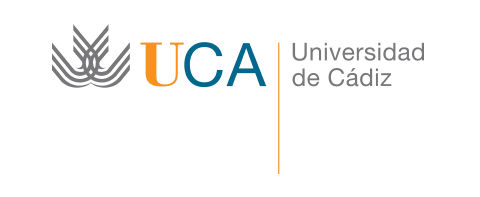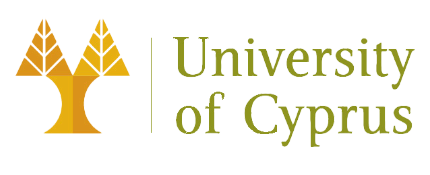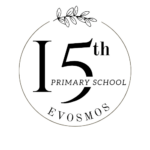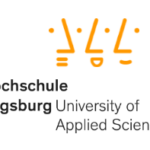The Norwegian University of Science and Technology – NTNU is Norway’s leading institution for educating the nation’s future engineers and scientists. NTNU participates in the ARIDLL project with the Innovative Immersive Technologies for Learning – IMTEL research group. IMTEL is an interdisciplinary research group working in the intersection of learning and immersive technologies. The group belongs to the Department of Education and Lifelong Learning, Faculty of Social and Educational Sciences and operates the NTNU VR lab, an environment with technical expertise in software development and a wide variety of VR and AR equipment. Researchers at IMTEL work on developing and evaluating immersive technologies for learning in varied contexts, ranging from university education to emergency and medical training and workplace training.

Norwegian University of Science and Technology

Cyprus University of Technology
The Cyprus University of Technology (CUT) is a public university, founded by law in December 2003. The Cyprus University of Technology participates in the ARIDLL project with the Cyprus Interaction Lab and the Language Centre. The Cyprus Interaction Lab (CIL) of the Department of Multimedia and Graphic Arts of CUT is an interdisciplinary research lab dealing with topics in educational technology and human computer interaction. The lab is the first of its kind in Cyprus; even though it is relatively new, it already stands out with high-quality research and facilities. CIL aims to understand the significant supportive and mediating role of technology in promoting learning, communication and collaboration, and inclusion in varied circumstances and contexts. The Language Centre (LC) of CUT has been operating offers students, staff and the broader public an opportunity to learn a foreign language. The Contemporary methodological approaches used in combination with the new digital technologies available provide the possibility of learning foreign languages within a complete educational framework.

Heilbronn University of Applied Sciences
Heilbronn University of Applied Sciences (HHN) ranks among the major institutions of Higher Education in the state of Baden-Württemberg in Germany. The university is committed to innovative and interdisciplinary knowledge transfer and has become a regional leader in technology-driven fundamental and applied research. HHN participates in the ARIDLL project with the UniTyLab, which is an interdisciplinary research institute in the area of Human-Computer Interaction focussing on Usability Engineering and innovative interaction technologies. Over the last years the UniTyLab conducted several national and international projects in the area of Augmented, Mixed and Virtual Reality. The core team members include Gerrit Meixner, a research professor for Human-Computer Interaction with more than 15 years of experience in software ergonomics and Augmented Reality.

Universidad de Cadiz
The research lines developed by the UCA team are multidisciplinary and focus on the development of creative computing as a means to improve learning processes paying special attention to issues such as authoring of interactive, virtual and augmented reality scenarios; learning analytics and computer-assisted assessment; video-games in computer-assisted language learning; linked open data and semantic web information systems; data privacy preservation. The team members belong to the Software Process Improvement (SPI) research group. They are connected to the Sustainable & Social Development Research Institute (INDESS) of the University of Cádiz (UCA). The team members’ expertise is in developing computational languages and tools to design domain-specific processes, activities and contents in various application fields, including e-learning, e-health and other industries. Some of the previous works carried out by the UCA team can be found at: http://vedils.uca.es/web/index.html

University of Cyprus
The University of Cyprus (UCY) is the leading university with more than 7,000 students, 104 laboratories and 750 faculty and staff members and the most active research institution in Cyprus (European Research Rankings). The UCY participates in the project through the KIOS Research and Innovation Center of Excellence (KIOS CoE) is the largest research centre within the UCY. In 2017, it was selected by the EU to be upgraded to a European Research and Innovation Center of Excellence through the EU’s strategic Horizon 2020 program for “Spreading Excellence and Widening Participation – Teaming”. Imperial College London is the Center’s partner in this endeavour. The KIOS CoE addresses some of the most important research and technological challenges by advancing ICT research towards intelligent systems and networks, able to produce smart decisions from large volumes of data. Its research team specializes in a wide range of areas, such as systems and control, distributed systems and algorithms, graph theory and optimization, computational intelligence, fault diagnosis and fault tolerance, and embedded systems, in an attempt to provide holistic and viable solutions for a variety of critical systems and applications. With more than 100 researchers, KIOS CoE boasts a critical mass of researchers with expertise in applied and industrial-geared research and innovation aiming to conduct outstanding interdisciplinary research and innovation and produce new knowledge and tools that can be applied to solve real-life problems. The Center has a proven track record in managing multidisciplinary research projects and has established an international reputation for excellence amongst academic and industrial institutions in several of its research domains.

The Open University, UK
The OU is represented in this project by the Institute of Educational Technology (IET) and the School of Languages and Applied Linguistics (LAL). IET is a world leading research institute focused on innovative use of technology in education. Set up by the OU in 1970 in recognition of the need to be at the forefront of R&D in technology enhanced learning, IET is a pioneer in open education, learning analytics, professional learning (aka performance augmentation), and learning futures. As one of two cross-cutting research institutes, the Institute is uniquely embedded in The Open University. Its R&D communities routinely collaborate in ensuring that ideas developed are deployed at scale, quickly and economically, and in ways that can be shared with others. To this end, IET supports Open Source, Open Research, Open Knowledge, Open Innovation, and Open Content. The School of Languages and Applied Linguistics is one of the UK’s largest, most dynamic and internationally active departments in its field. LAL’s research encompasses language as a social practice in various contexts, notably language in education (with a particular focus on digital pedagogies), in the workplace and the professions, in politics and the media, and in various cultural environments. LAL offers modules and short courses in English for Academic Purposes, French, German, Spanish, Italian, Chinese, and Welsh. IET maintains a programme on ‘Performance Augmentation’, with focus on XR and Wearable Technologies, seeking to close the dissociative gap between abstract knowledge and its practical application, researching radically new forms of linking directly from knowing something ‘in principle’ to applying that knowledge ‘in practice’ and speeding its refinement and integration into polished performance. R&D in this programme sets out to embed information directly into experience, developing novel and powerful forms of real-time feedback on performance.

15th Primary School of Evosmos, Greece
15th Primary School of Evosmos is a State Primary School that covers the educational needs of about 300 students at primary level, aged 6-11 years. There are 30 teachers in total including specialized staff for teaching English, French, German, PE, IT, Art and Drama apart from the class teachers. 15th Primary School participates in the ARIDLL project mainly with the English language teachers who employ Immersive Technologies in their teaching practices and they also develop and pilot AR learning materials. The school has been awarded with a specialized prize for adopting AR in teaching English as a foreign language.

Technical University of Applied Sciences Augsburg
With 7,000 students the Technical University of Applied Sciences Augsburg (THA) is one of the largest in Bavarian Swabia. With over 150 professors and more than 300 tutors, it uses the latest teaching methods and equipment to provide students with the best education in science, technology and the arts. The commitment of over 290 academic support staff, as well as our state-of-the-art laboratories, workshops and lecture halls, all contribute to excellent conditions for research and teaching. THA’s mission is to shape personalities that are in great demand in business and society. Application-oriented expertise and social competency are achieved through a profound scientific foundation, state of the art real life content and the latest ways of teaching and learning. The ARIDLL team members include Alice Gruber, a highly experienced practitioner and researcher in technology-enhanced language education.


